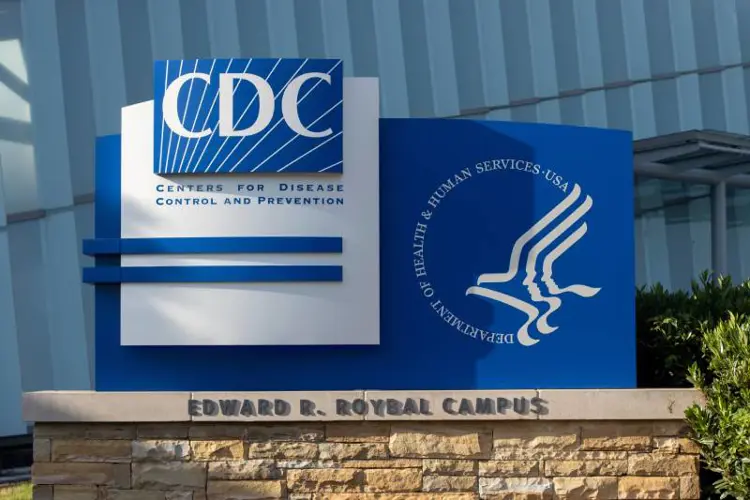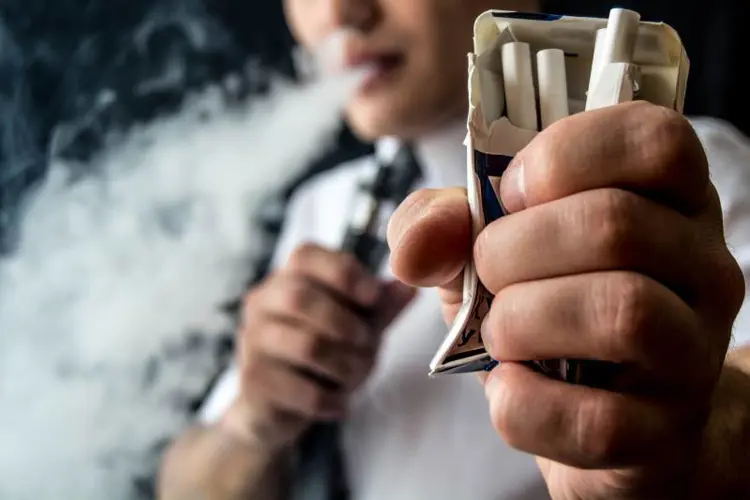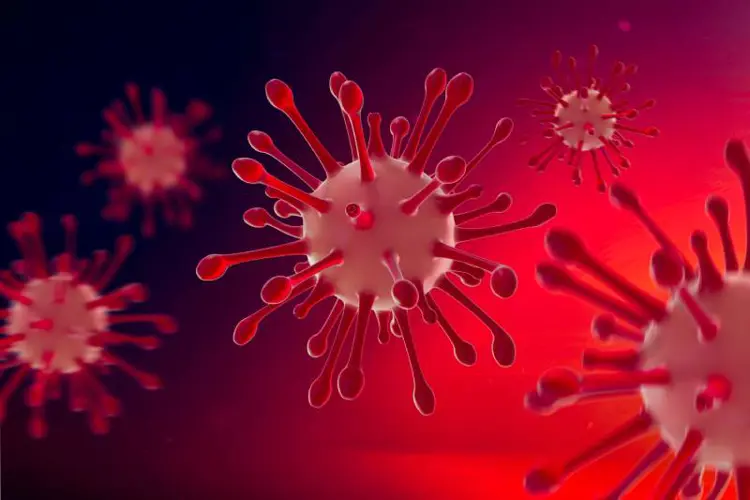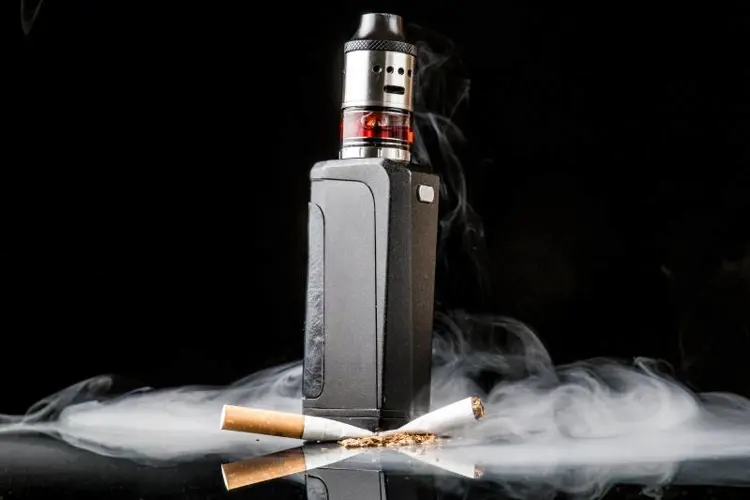Despite dire warnings from tobacco control activists, there is no evidence that vaping increases the risk of being infected with SARS-CoV-2, the coronavirus that causes COVID-19. That’s the conclusion of a study just published by a group of Mayo Clinic researchers in the Journal of Primary Care and Community Health.
The team analyzed data from over 69,000 patients who visited Mayo facilities between September 2019 and November 2020, and determined that “current or former e-cigarette use was not associated with COVID-19 diagnosis.” The patients’ vaping or smoking status was ascertained by their physicians during visits.
The researchers also found that “Current, but not former, smokers were less likely to have a COVID-19 diagnosis compared to never smokers.” This finding aligns with thousands of studies and datasets from around the world showing current smokers are less likely to seek medical attention for COVID-19 than non-smokers. A meta-review of more than 200 studies by UK researchers reached the same conclusion.
Here's how the NYT covered the topic back in September, though there was reason for doubt even then. But why let scientific uncertainty stand in the way of publicizing a new way to demonize nicotine?https://t.co/FT35fB1wge
— Jacob Grier (@jacobgrier) June 11, 2021
The result is the exact opposite of the narrative advanced during the past 15 months by anti-vaping scientists, public health authorities and politicians. As we reported in early March 2020, political opportunists like New York City Mayor Bill de Blasio were already claiming—with literally zero evidence—that “If you are a smoker or a vaper that does make you more vulnerable.”
Later in March, then-Surgeon General Jerome Adams speculated that vaping could be the reason that American coronavirus infections skewed toward younger people than in other countries. Of course, they actually didn’t.
On April 1, U.S. Representative Raja Krishnamoorthi asked the FDA to temporarily “clear the market” of vaping products, claiming there was evidence that vaping exacerbated coronavirus risk. “Reducing the number of smokers and vapers that fall ill with coronavirus will not only help them, but the entire health system,” wrote the Illinois congressman.
Scientific American's @tanyalewis314 loves data, so now that we have actual patient data and not teens responding to an online survey (and finding COVID numbers way out of whack with CDC data), I look forward to the follow up.https://t.co/NQ4kZEwt5m
— Gregory Conley (@GregTHR) June 11, 2021
Later in April, National Institute on Drug Abuse (NIDA) Director Nora Volkow got into the act, warning without evidence that “COVID-19 could be an especially serious threat to those who smoke tobacco or marijuana or who vape.”
In June, a World Health Organization (WHO) scientific brief said that evidence “suggests that smoking is associated with increased severity of disease and death in hospitalized COVID-19 patients.” But if something in cigarettes (probably nicotine) is protective against severe COVID complications, isn't that exactly what would happen when a patient enters the hospital and is forced to stop smoking?
The WHO did admit that “Although likely related to severity, there is no evidence to quantify the risk to smokers of hospitalization with COVID-19 or of infection by SARS-CoV-2” in the available scientific literature.
I am confident that @lila_seidman, who saw fit to quote a UCSF prof as an authority two months after the AHA journal forcibly retracted a study he wrote and four months after his university kicked him out the door, will have an article soon.https://t.co/zpmDXTtZ5Q
— Gregory Conley (@GregTHR) June 11, 2021
Scientists who began researching the potentially protective effects of nicotine were pilloried by anti-tobacco organizations, who accused them of being tobacco industry tools. Yet, clinical trials with nicotine patches were planned at a French hospital.
The most damaging (and most obviously dishonest) news stories came in August, after Stanford anti-vaping activist Bonnie Halpern-Felsher and two colleagues published a study that purported to show adolescents and young adults were five to seven times more likely to test positive for COVID-19 than non-vapers. Hundreds of news outlets across the country lapped up and regurgitated the claims, but few dug into the details of the study.
Based on online survey data from early May, the study claimed to show that “COVID-19 diagnosis was five times more likely among ever-users of e-cigarettes only, seven times more likely among ever-dual-users [people who smoke and vape], and 6.8 times more likely among past 30-day dual-users.”
But something was missing: the study showed no association between current exclusive vaping (or exclusive smoking) and COVID. How could vaping or smoking at some point in the past make a teenager five times more likely to be diagnosed with COVID-19 than a past-30-day—or even daily—vaper? Wouldn’t that result indicate that regular vaping or smoking is protective against COVID?
I'm also confident that @KitRamgopal, @CynthiaMcFadden, and @Therealferg are examining this Mayo Clinic study of actual medical data and wondering whether a self-selected online survey may have been wrong.https://t.co/M7mnBbMaqY
— Gregory Conley (@GregTHR) June 11, 2021
Furthermore, who were all these teenagers getting coronavirus tests during the early weeks of the crisis, when tests were very hard to come by, and the vast majority of hospitalized COVID patients were elderly and middle-aged?
Halpern-Felsher and her co-authors refused to provide the raw numbers of survey participants. But, by working backwards from the published odds ratios, University of Louisville researcher Brad Rodu estimated that the two eye-popping results (five and seven times more likely) were based on just five and three survey responses. Other academic responses to the article questioned the paper’s methods and the data itself. Some called for a retraction.
Unfortunately, it’s unlikely that the news outlets that so gleefully reported Halpern-Felsher’s debunked study will try to correct public understanding of the issue by describing the new research from the Mayo Clinic and explaining how it clashes with the seriously flawed Halpern-Felsher paper.
Halpern-Felsher herself certainly won’t come out and admit her study was a glaring example of junk science. Neither will her Bloomberg-funded supporters at the Campaign for Tobacco-Free Kids and PAVe. And none of the politicians who use teen vaping as an easy publicity generator will make their way to a microphone to apologize for their speculation and lies.
And that leaves us right where we were before the Mayo Clinic study was published.
The Freemax REXA PRO and REXA SMART are highly advanced pod vapes, offering seemingly endless features, beautiful touchscreens, and new DUOMAX pods.
The OXVA XLIM Pro 2 DNA is powered by a custom-made Evolv DNA chipset, offering a Replay function and dry hit protection. Read our review to find out more.
The SKE Bar is a 2 mL replaceable pod vape with a 500 mAh battery, a 1.2-ohm mesh coil, and 35 flavors to choose from in 2% nicotine.
Because of declining cigarette sales, state governments in the U.S. and countries around the world are looking to vapor products as a new source of tax revenue.
The legal age to buy e-cigarettes and other vaping products varies around the world. The United States recently changed the legal minimum sales age to 21.
A list of vaping product flavor bans and online sales bans in the United States, and sales and possession bans in other countries.


















